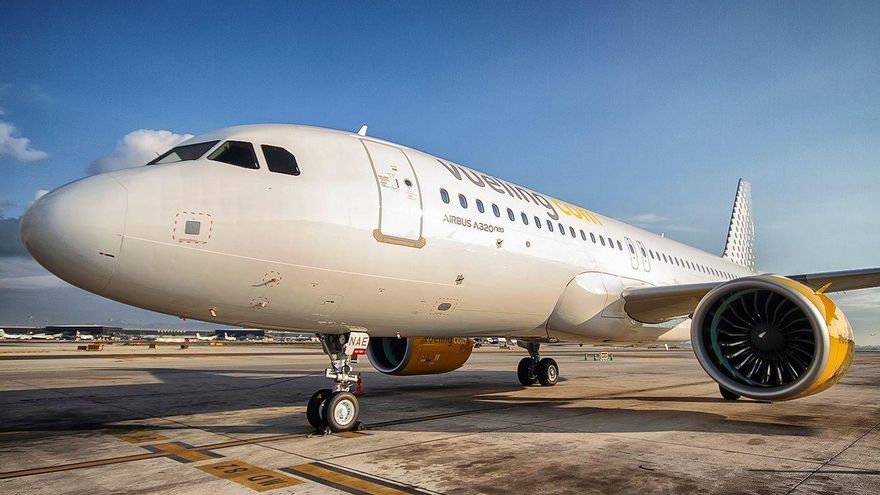
Vueling is working to expand the facial recognition system, allowing passengers to avoid taking out their documents from security control to boarding their flight, making the boarding process smoother, at “a large number” of Spanish airports, including those in Tenerife.
This was explained by Vueling’s IT director, Javier Álvarez, in an interview with Europa Press at the Mobile World Congress (MWC), where he detailed that the system is already operational in the airports of Barcelona, Madrid, and the three in the Balearic Islands, and that in “a few weeks” it will be in the airports of Tenerife and Las Palmas, in the Canary Islands.
“We will work progressively with Aena to implement the system in other airports within their network. This is a commitment we have made in line with offering the easiest and simplest process possible for our customers,” he added.
Asked about a possible implementation of facial recognition in European airports, he said they will talk to the different infrastructure managers to be able to expand the operation: “We will try to have all the main routes we want” to have it.
“We are convinced that this is a technology that is gaining strength and that in a few years will be very well received by customers,” he said, advocating for eliminating the stress still associated with the airport experience.
The Benefits of AI
[–>
Álvarez detailed that the company has optimization and prediction models that allow, using traditional Artificial Intelligence (AI), to improve internal processes and customer experience.
“We have processes that optimize everything from network design, routes, frequencies, and flights, to the operation of these flights, assigning in the smartest and most optimal way possible to the planes, crews, routes, frequencies, etc.,” he added.
He pointed out that these applications have allowed them to improve the company’s punctuality figures and resolve issues for passengers already on the flight.
The Future, a 100% Digital Experience
[–>
The company has a “customer segment very oriented to the digital,” as 90% of its users already check in using the app or the website.
Álvarez analyzed that there are also customers who prefer traditional methods, which the company plans to continue offering, and predicted a “100% digital boarding experience for customers who choose it.”
In his opinion, AI and virtual reality “can play a very important role in companies’ internal processes” in the future, and stated that Vueling will not be an exception.
In this sense, he explained that the airline undergoes continuous training to be able to address the constant changes in the technological sector: “Usually, we are always behind the technology.”
















